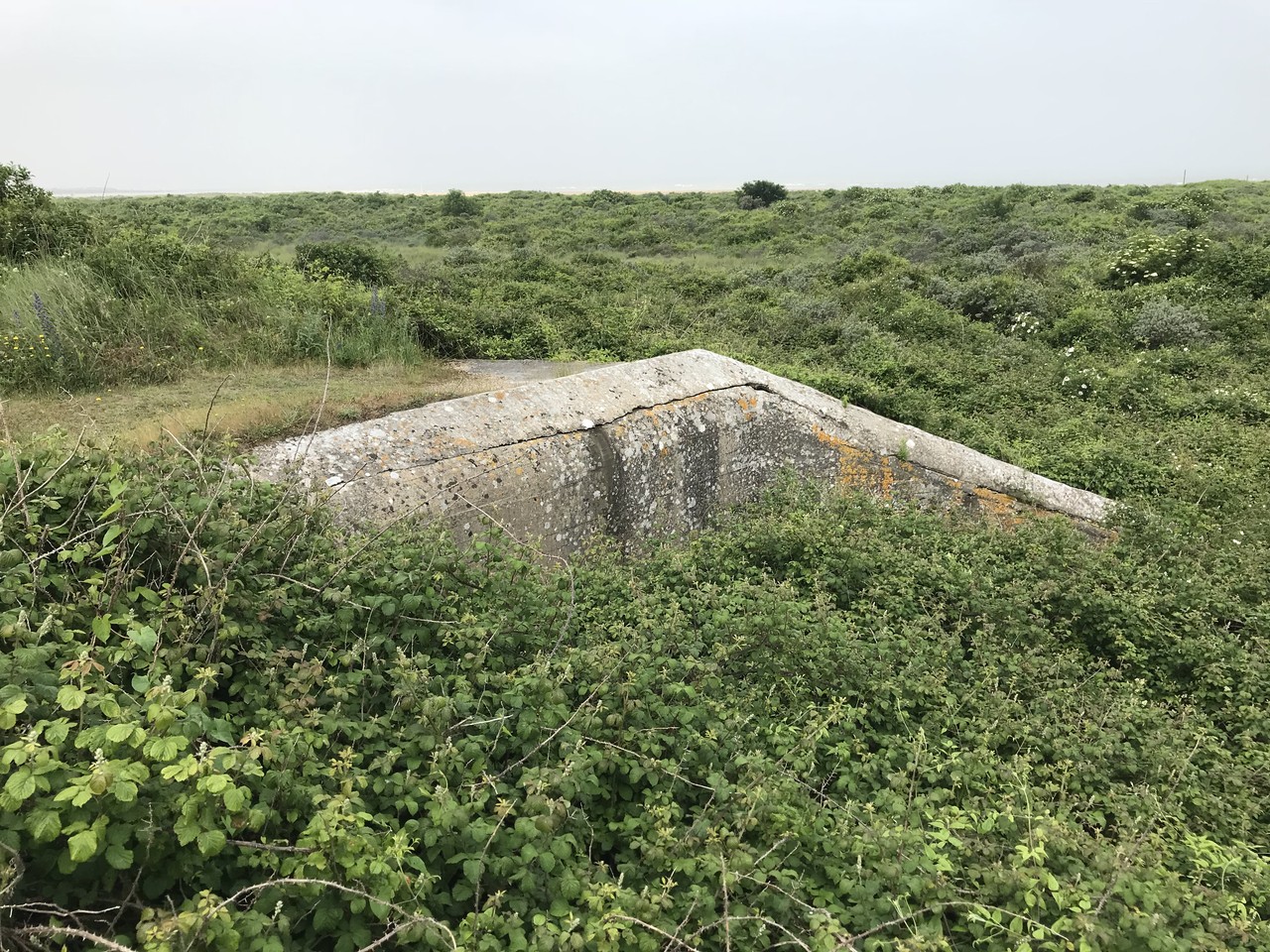WN05 was made up of several concrete defensive positions overlooking this small area of beach and west towards the mouth of the River Orne. It included multiple gun emplacements, such as 75mm and 35mm cannons. These were supported by machine gun nests and anti-aircraft guns. This sector of the Atlantic Wall was defended by soldiers of the German 716th and 711th Infantry Divisions.
The observation bunker was a key element of the Merville Gun Battery located 2km southeast of WN05. The battery was manned by the 716th Infantry Division’s Artillery Regiment (1716th). In 1944, this bunker sat along the beachfront; over time, shifting sand has now placed it among the dunes.
On the night of 5 June 1944, Steiner was present in this bunker. He had stored his bicycle, used to travel between the battery and the observation post, inside. The site is now referred to as “Steiner’s bike shed.” Despite this, Steiner chose to use a different bunker 500 meters to the east as his command post. Due to drizzle and rain, Steiner assumed a landing was unlikely and went to sleep.
Just after midnight on 6 June, Steiner was awoken by a call from his second-in-command, Hauptwachtmeister Buskotte. Buskotte reported that an Allied glider had landed near the Merville Battery and that close-quarter combat had begun. Steiner immediately contacted General Richter at 00:28 to inform him of the fighting, but the warning was not taken seriously.
Steiner and several of his men exited their bunker and moved into the surrounding dunes. He recalled the sound of bombers overhead striking targets further west. More aircraft soon followed, towing gliders. Steiner noted their unusual size and even fired upon them with two other soldiers. He believed that one glider he hit later crashed east of the Merville Battery.
Later that morning, Buskotte called again, stating the battery was under renewed attack. This was the assault by Lt. Col. Otway and the British 9th Parachute Battalion. Steiner ordered artillery from the 711th Division to fire on the Merville position due to Allied presence and told Buschotte to move the men into protective bunkers.
Buskotte’s final call reported the British attempting to use flamethrowers. Steiner then retrieved his bicycle and rode to the Merville Battery to assess the situation himself.
